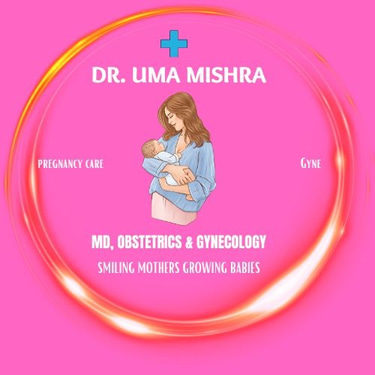Exercises to Avoid During the First Trimester of Pregnancy
2/18/20243 min read


Dr Uma Mishra, Gynecologist- one of the best gynecologists in India explains which exercises women should avoid during the first trimester of pregnancy. Consult Dr Uma Mishra online or at the clinic in Noida, India to get the best pregnancy care!
Introduction
Congratulations on your pregnancy! This is an exciting and transformative time in your life. As an expecting mother, it's important to prioritize your health and the well-being of your baby. While exercise is generally encouraged during pregnancy, there are certain exercises that should be avoided during the first trimester. In this article, we will discuss these exercises and provide alternatives that are safe and beneficial for you and your baby.
Exercises to Avoid
During the first trimester of pregnancy, your body is undergoing significant changes to support the growth of your baby. It is important to avoid exercises that may put unnecessary strain on your body or potentially harm your developing baby. Here are some exercises to avoid:
1. High-Impact Exercises
High-impact exercises, such as running, jumping, or intense aerobic workouts, can put excessive pressure on your joints and pelvic floor muscles. These exercises may increase the risk of injury or complications during the first trimester. It is best to choose low-impact exercises that are gentler on your body, such as walking, swimming, or prenatal yoga.
2. Abdominal Crunches
Traditional abdominal crunches involve lying on your back and contracting your abdominal muscles. However, during the first trimester, lying flat on your back for an extended period of time can reduce blood flow to your uterus and potentially affect your baby's oxygen supply. Instead, opt for exercises that engage your core muscles while maintaining an upright or side-lying position, such as standing pelvic tilts or modified planks.
3. Heavy Weightlifting
While strength training can be beneficial during pregnancy, it is important to avoid heavy weightlifting during the first trimester. This is because the hormone relaxin, which is released during pregnancy, can loosen your ligaments and joints, making you more susceptible to injuries. Choose lighter weights or resistance bands for strength training exercises and focus on maintaining proper form and technique.
4. Contact Sports
Engaging in contact sports, such as soccer, basketball, or martial arts, during the first trimester can increase the risk of abdominal trauma or falls. It is best to avoid these activities to protect both you and your baby. Instead, consider low-impact sports or activities that are less likely to result in collisions or falls, such as swimming or prenatal Pilates.
5. Hot Yoga or Hot Pilates
Exercising in a hot and humid environment, such as hot yoga or hot Pilates studios, can cause your body temperature to rise to unsafe levels during the first trimester. Elevated body temperature has been linked to an increased risk of birth defects. Opt for regular yoga or Pilates classes that are conducted in a comfortable room temperature.
Foods and Drinks to Avoid During the First Trimester
In addition to avoiding certain exercises, it is important to be mindful of your diet during the first trimester. Some foods and drinks should be avoided or consumed in moderation to reduce the risk of potential harm to you and your baby. Here are some foods and drinks to avoid:
1. Raw or Undercooked Meats
Raw or undercooked meats, including poultry, seafood, and eggs, may contain harmful bacteria such as salmonella or listeria. These bacteria can cause food poisoning, which can be particularly dangerous during pregnancy. Ensure that all meats are cooked thoroughly to kill any potential bacteria.
2. Unpasteurized Dairy Products
Unpasteurized dairy products, including certain cheeses and milk, can contain harmful bacteria such as listeria. These bacteria can lead to foodborne illnesses and pose a risk to your baby's health. Opt for pasteurized dairy products to ensure safety.
3. Raw or Undercooked Fish
Raw or undercooked fish, such as sushi or sashimi, may contain high levels of mercury and other contaminants. These substances can be harmful to your baby's developing nervous system. Choose cooked fish options that are low in mercury, such as salmon or trout.
4. Caffeine
While moderate caffeine intake is generally considered safe during pregnancy, excessive consumption should be avoided. High levels of caffeine have been linked to an increased risk of miscarriage or preterm birth. Limit your caffeine intake to 200 milligrams per day, which is equivalent to about one cup of coffee.
5. Alcohol
Alcohol should be completely avoided during pregnancy, especially during the first trimester. Drinking alcohol during pregnancy can increase the risk of miscarriage, stillbirth, and a range of developmental issues known as fetal alcohol spectrum disorders (FASDs). It is best to abstain from alcohol throughout your pregnancy.
Conclusion
During the first trimester of pregnancy, it is important to prioritize your health and the well-being of your baby. Avoiding certain exercises and being mindful of your diet can help ensure a healthy and safe pregnancy. Remember to consult with your healthcare provider for personalized advice and recommendations based on your specific circumstances. Enjoy this special time and take care of yourself!
